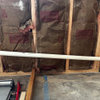my basement smells like a sewer--REALLY!
tuesday_tues
16 years ago
Featured Answer
Sort by:Oldest
Comments (10)
jimonthebeach
16 years agolast modified: 9 years agoRelated Professionals
Arlington Handyman · Hillcrest Heights Handyman · Normal Kitchen & Bathroom Remodelers · Fullerton Kitchen & Bathroom Remodelers · Fort Myers Kitchen & Bathroom Remodelers · Fremont Kitchen & Bathroom Remodelers · Luling Kitchen & Bathroom Remodelers · Overland Park Kitchen & Bathroom Remodelers · Pico Rivera Kitchen & Bathroom Remodelers · Santa Fe Kitchen & Bathroom Remodelers · Sicklerville Kitchen & Bathroom Remodelers · Sioux Falls Kitchen & Bathroom Remodelers · Spanish Springs Kitchen & Bathroom Remodelers · Turlock Kitchen & Bathroom Remodelers · Sharonville Kitchen & Bathroom Remodelerslazypup
16 years agolast modified: 9 years agotuesday_tues
16 years agolast modified: 9 years agotuesday_tues
16 years agolast modified: 9 years agobus_driver
16 years agolast modified: 9 years agobrickeyee
16 years agolast modified: 9 years agolazypup
16 years agolast modified: 9 years agotuesday_tues
15 years agolast modified: 9 years agobrickeyee
15 years agolast modified: 9 years ago
Related Stories

HOUSEKEEPINGWhat's That Smell? What to Do About Stinky Furniture
Learn how to diagnose and treat pet and other furniture odors — and when to call in a pro
Full Story
UPHOLSTERYFurniture Clinic: End the Curse of Slouchy Couch Cushions
Prolong the life of your couch with this inexpensive fix that’s so easy, even a beginning sewer can do it
Full Story
HOMES AROUND THE WORLDWorld of Design: 11 Book Lovers and Where They Like to Read
Bibliophiles across the globe reveal their top books and favorite reading spots, from a 2-story library to an artfully curated book nook
Full Story
LIFEHouzz Call: What Makes Your House Feel Like Home?
Sometimes just one thing gives you that warm and fuzzy feeling. Let us know what it is for you
Full Story
CHRISTMASHow to Light Your Christmas Tree Like a Pro
Give yourself frustration-free tree lighting this year — the trick is clever cord management
Full Story
DECORATING GUIDESHow to Make Your Home Feel More Like You
Show your real style through a favorite color, everyday accessories, art, collections and more
Full Story
BASEMENTSDesign Workshop: Is It Time to Let Basements Become Extinct?
Costly and often unnecessary, basements may become obsolete — if they aren’t already. Here are responses to every reason to keep them around
Full Story
LIVING ROOMSBelow My Houzz: An Inviting Basement With Industrial Edge
Reconfiguring a cramped, damp basement opens up a new world of sleek, functional spaces
Full Story
REMODELING GUIDESContractor Tips: Finish Your Basement the Right Way
Go underground for the great room your home has been missing. Just make sure you consider these elements of finished basement design
Full Story
THE HARDWORKING HOMEWhere to Put the Laundry Room
The Hardworking Home: We weigh the pros and cons of washing your clothes in the basement, kitchen, bathroom and more
Full Story







hexus